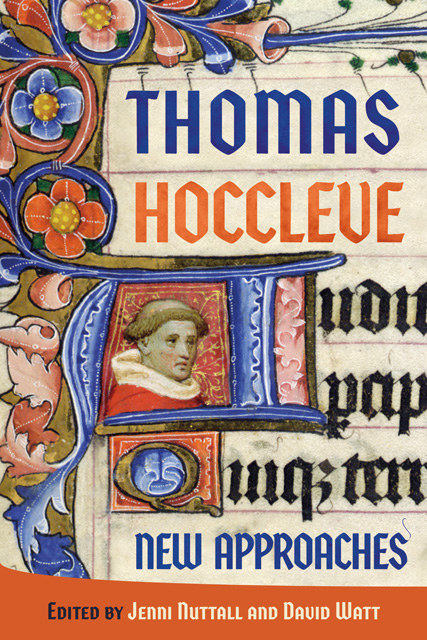4 - A ‘troubly dreme drempt al in wakynge’: Hoccleve’s Nearly-Dream Poem
Published online by Cambridge University Press: 11 January 2023
Summary
This essay reappraises the peculiar experiments in genre and form in Thomas Hoccleve’s Regiment of Princes. Lines 1 to 2016 of the Regiment represent a purposeful reworking of one of late medieval England’s most favoured, but eventually outmoded, poetic forms: dream-framed first-person narrative. In what follows, the genre-bending first section of the Regiment is considered as a development of, and an alternative to, the dream poetry of Chaucer and his French predecessors and contemporaries. Central to my analysis is an understanding of form as the manifestation in text of an ‘originating thought’ of the poet.1 Hoccleve, like Chaucer, adopts a dream-framed form in order to dramatise the processes of poetic composition. However, where Chaucer seems primarily interested in the situation of his works in relation to other authors and texts, Hoccleve’s reconfigurations in the Regiment betray a more immediate concern with the position of his writing relative to contemporary political and religious discourses, and the insertion of his quasi-autobiographical textual double into a properly functioning system of Lancastrian royal patronage. Beginning by discussing the Regiment’s formal elements and its genre, I then delineate some of the key narratorial features of Middle French and Chaucerian dream poetry in order to make the case that Hoccleve’s distinctive self-authorising strategy in the Regiment involves both an imitation and a pointed refusal of Chaucer’s dream poems.
The Regiment has presented modern critics with a number of formal diffi-culties. The first is its lack of proportion. Almost two-fifths of the Regiment’s 5463 lines comprise its first-person narrative in which a poet-narrator – later identified by the name ‘Hoccleve’ (1864, 1865) – walks out from his home at Chester’s Inn and encounters a ‘poore old hoor man’ (122). The narrative’s ostensible purpose is to provide a fictionalised account of the historical author Hoccleve’s compilation of the mirror-for-princes treatise that follows. That treatise begins at line 2017, with a Prologue dedicating the work to Prince Henry, the future King Henry V. Most manuscripts use a rubric to mark another transition at line 2156. While they vary a little, these rubrics generally indicate that the prologue has come to an end and the Regiment proper is about to begin: ‘Explicit prologus, de principum regimine; incip-iendo de fide observanda’ [the prologue to the Regiment of Princes here ends; the beginning [of the section] concerning the keeping of faith].
- Type
- Chapter
- Information
- Thomas Hoccleve New Approaches , pp. 85 - 102Publisher: Boydell & BrewerPrint publication year: 2022

